Graduated in mechanical engineering, Tran Bao Huy (born in 1988, in Phu Yen ward) works for a Japanese corporation headquartered in Ho Chi Minh City. After 7 years of working, Huy decided to move to Xuan Huong ward - Da Lat (Lam Dong province) to open a homestay. From using bunny ear cactus for decoration as a way to highlight the sea space in the middle of the plateau, Huy had the opportunity to learn more about this familiar plant and discovered that cactus has many uses.
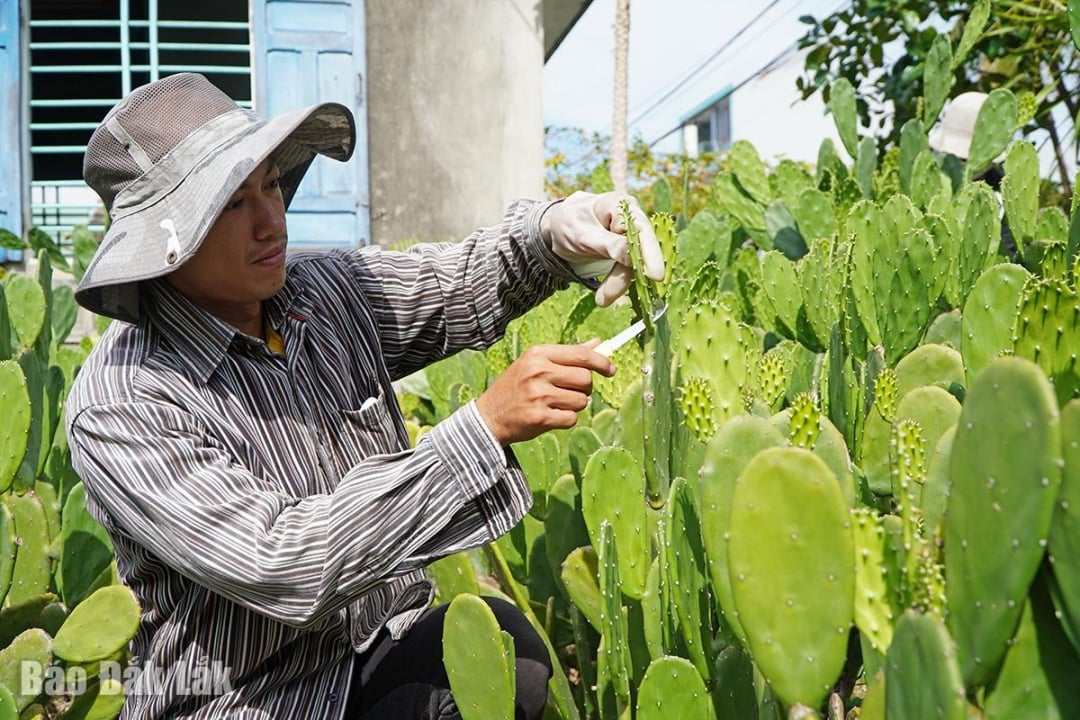 |
| Mr. Tran Bao Huy harvests cacti at the model garden. Photo: M. Duyen |
Instead of providing services, Huy switched to growing and experimenting with processing cacti into pickled cacti and cactus juice. Initially, because he did not know how to control the viscosity, the products were easily spoiled and rotten. After a while of learning, Huy discovered the technology of pressing, drying and forming his own formula for processing cacti. Seeing a new direction, Huy sold all his assets and returned to his hometown of Phu Yen to start a new journey: starting a business with cacti.
“In July 2023, the first bottles of cactus juice were produced that met the standards and could be preserved in natural conditions for a year while still retaining their original quality. In 2024, two products, cactus juice and pickled cactus, received food safety certification. In 2025, I also produced cactus herbal tea packaged in filter bags,” Huy said.
Cactus is a plant that grows naturally in the sunny and windy Central region; just use a nutritious branch to stick in the sand and it will grow into a plant. However, cacti appear scattered, so harvesting for processing is difficult. To have stable raw materials, Huy mobilized people to plant large areas. Currently, Huy has linked with 20 households to increase the planting area from 2 to 5 hectares. Thereby, not only ensuring raw materials for processing but also helping people have more income from this familiar plant.
Determined to stick with cactus, Huy established Vietnam Cactus Company Limited, built a processing factory and promoted the consumption of cactus products to the market under the Leafking brand.
Not only achieving economic benefits, Tran Bao Huy's dream is also to cover the barren sandbars with green, sending a message of environmental protection and climate change adaptation to everyone. "Cactus is suitable for the dry, sandy soil of the Central region. When it grows widely, cactus not only creates economic value but also contributes to responding to climate change, limiting soil degradation and desertification. Increasing the value of this plant is also a way to contribute to bringing a stable life to the people," Huy confided.
Tran Van Vu (born 1986, Dong Hoa ward) also stayed in Ho Chi Minh City to work after graduating from university with a degree in construction engineering.
In his spare time, Vu learns about cactus, a traditional plant of his homeland's sandy land, and feels sorry that countries like the US and India have long exploited cactus into a commodity product with high economic value, while his hometown people, who have been attached to cactus for generations, cannot do better.
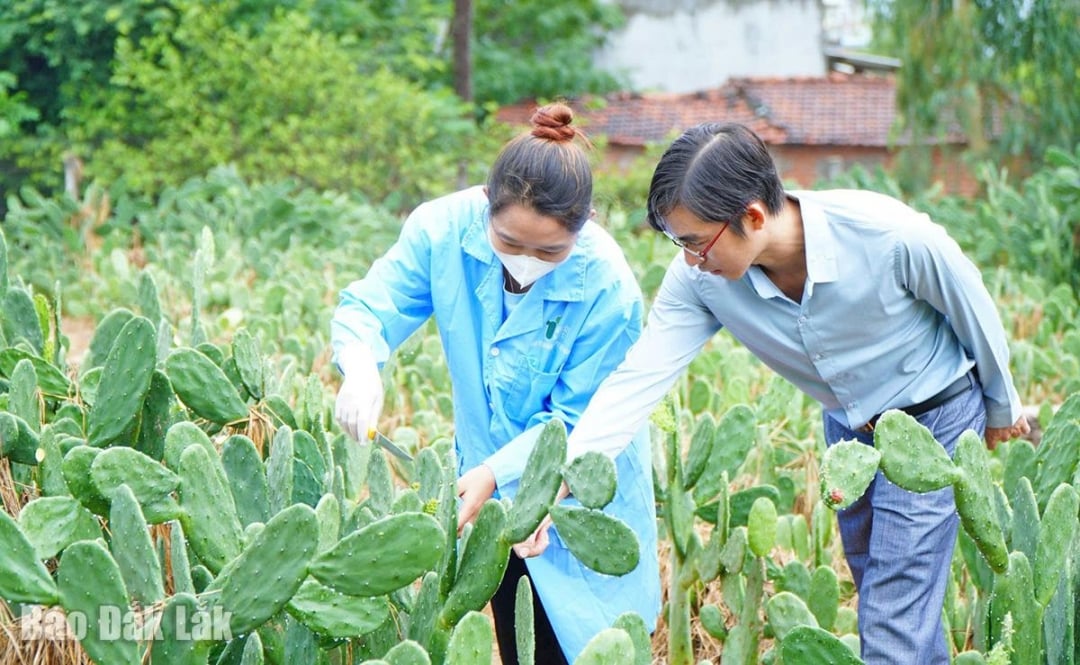 |
| Mr. Tran Van Vu checks the growth process of cactus on the sandy soil of his hometown. Photo: Contributor |
With the goal of turning this familiar plant into a valuable crop, Vu started exploiting it, and Vu's method was to apply science and technology to extract fresh cactus into raw materials for cosmetics production.
In 2018, Vu returned to his hometown to establish Organic Nopal Vietnam Joint Stock Company and increased the area of raw materials from 300 m2 to 5 hectares. During the extraction process, the company applies biotechnology and advanced machinery to preserve vitamins, minerals and precious active ingredients in cactus. Thereby creating products rich in nutritional value, with high medicinal properties for the food and cosmetic industry, while being very environmentally friendly.
“The road ahead is still full of hardships, but now I am happy because after so much effort I have finally found a way to affirm the value of cactus,” Vu shared.
Source: https://baodaklak.vn/kinh-te/202509/khoi-nghiep-voi-xuong-rong-6a10fe2/



![[Photo] Da Nang: Hundreds of people join hands to clean up a vital tourist route after storm No. 13](https://vphoto.vietnam.vn/thumb/1200x675/vietnam/resource/IMAGE/2025/11/07/1762491638903_image-3-1353-jpg.webp)

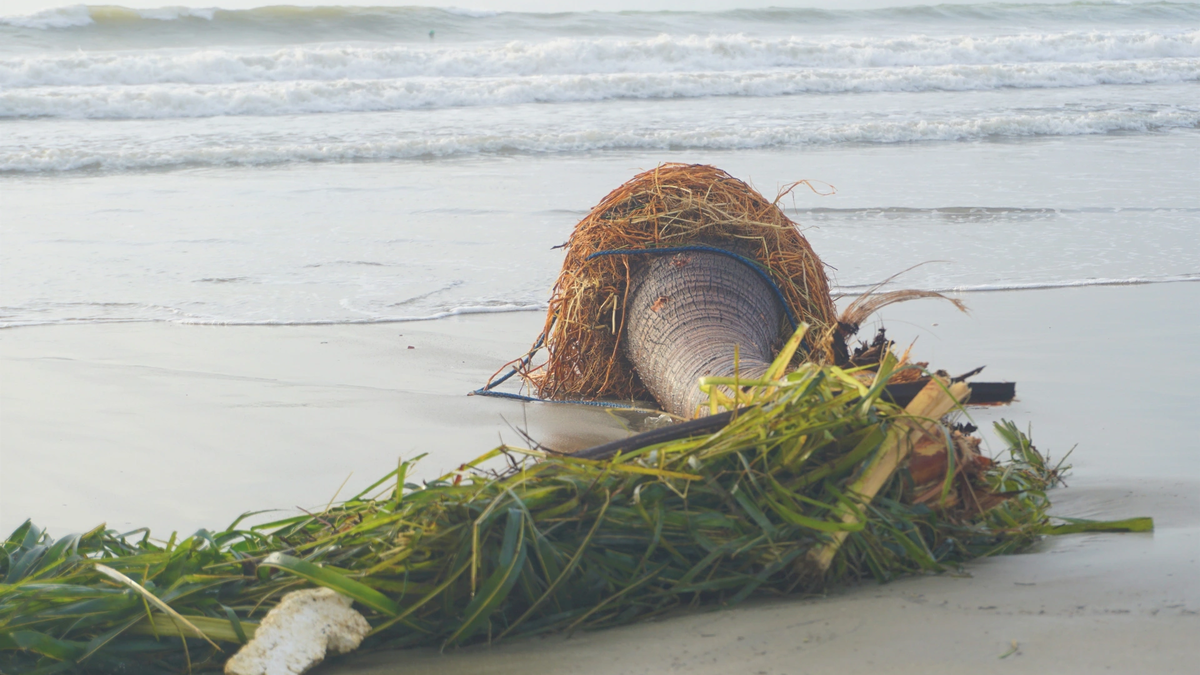




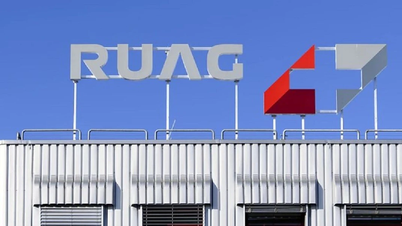

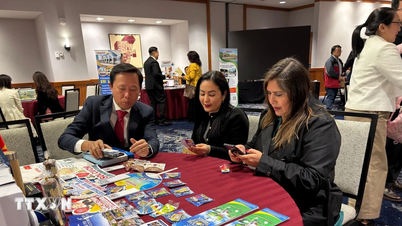


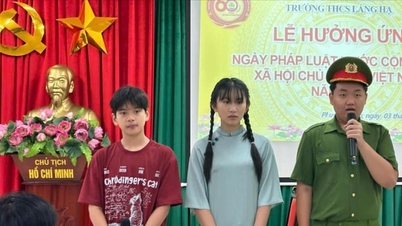




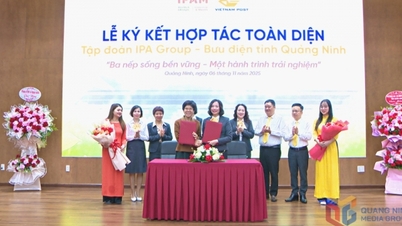











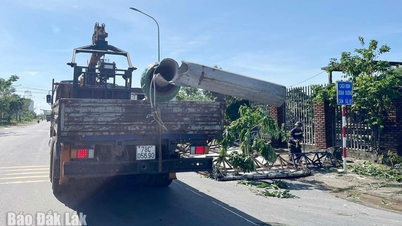
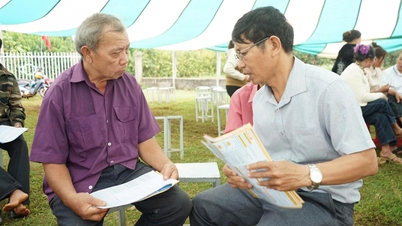

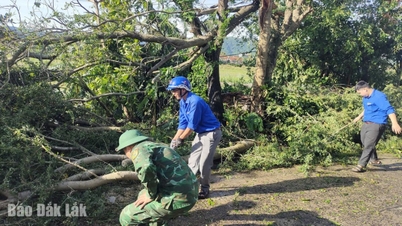
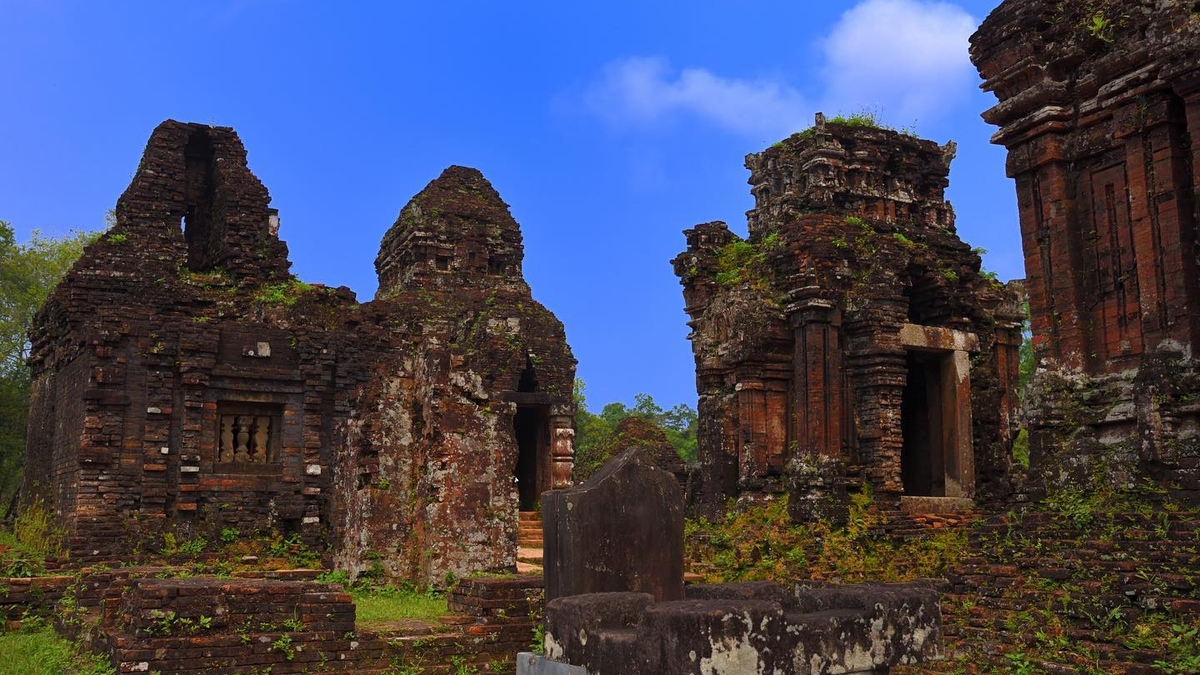












































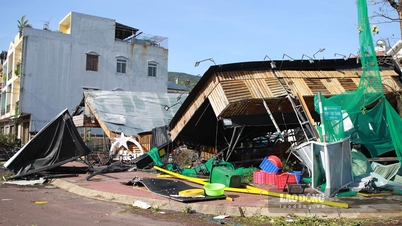




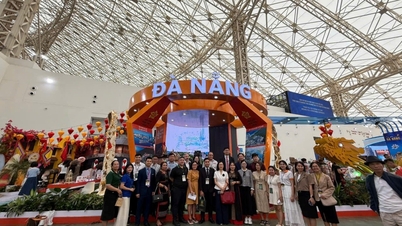



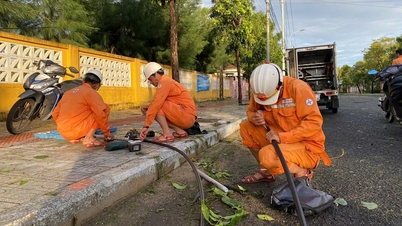

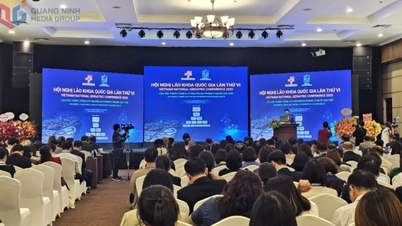

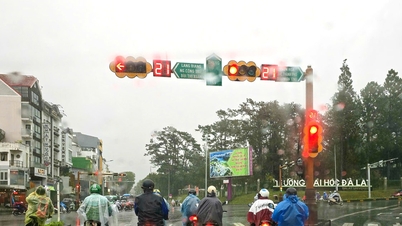

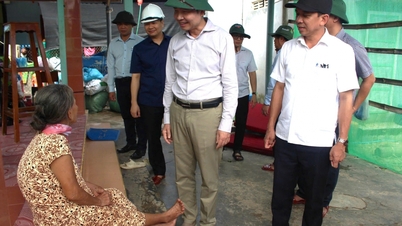















Comment (0)